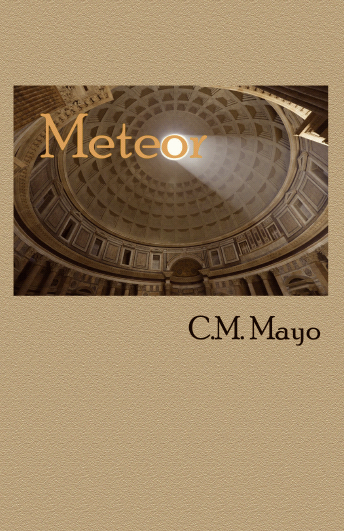BY C.M. MAYO — October 11, 2021
UPDATE: This blog was then entitled Madam Mayo (2006-2022).
This blog posts on Mondays. Second Mondays of the month I devote to my writing workshop students and anyone else interested in creative writing. Welcome!
> For the archive of workshop posts click here.
Boldly nurture your creativity! Heed the call to your greatness, your highest self, ever and always! Even if you feel itty bitty! Because you know that first draft is crap! Herewith, a set of tips and tricks to, by the itty and by the bitty, get your revision mojo mojoing.
Revision: Take a Chainsaw to Those Little Darlings, Prune, Do No Harm, Be an Archaeologist, Move the Furniture Onto the Front Lawn, Flip the Gender
Originally posted on Madam Mayo blog, by C.M. Mayo, May 1, 2006
Revision on my mind… as I am revising the revision of the revision (of the revision) of my novel… which has already undergone a few chainsaw massacres… more than Texas-sized… Australia-sized (I’m talking 250 pages)… I am also gearing up to give a special one day workshop on Revision at the Writers Center this May 14th [2006]… So I recently asked a few writer friends for their thoughts on revision. Novelists Mary Kay Zuravleff and Carolyn Parkhurst were both in my writing group; first-hand I’ve seen how good they are with revision. Check out their websites to see what they’re up to– both have wonderful new novels out. Dinty W. Moore is the author of many books, most recently The Truth of the Matter: Art and Craft in Creative Nonfiction. Dawn Marano is fine writer of creative nonfiction and, bless her heart, the editor of my memoir, Miraculous Air. Known to all in literary Washington DC but the brain dead, Richard Peabody is a poet, fiction writer, editor, publisher and writing teacher. Check out his website– he’s offering a novel writing workshop.
Here’s what they had to say on revision:
“the smell pass, the hearing pass”
MARY KAY ZURAVLEFF
“The prose on my pages doesn’t match what I’ve envisioned for drafts and drafts. Near the end, I make a pass for each of the senses. There’s the smell pass, the hearing pass, etc., as I try to vivify every sidelong glance. Then it’s time to prune it back so readers don’t choke on details!”
“first, do no harm”
CAROLYN PARKHURST
“When facing revisions, I think it’s useful for a writer to begin from the same starting point as a doctor: first, do no harm. Revision is a vital part of the writing process, but it’s possible to revise all the life out of something if you’re not careful. Never lose sight of what was artful and compelling about the piece in its purest state: when it existed only in your imagination.”
“curiosity… questions”
DAWN MARANO
“Substantive revision—as opposed to line-editing, that is, moving commas around and such—begins when a writer returns to a draft of her work with the curiosity of, say, an archaeologist. Arrayed before her are the traces of a lost civilization—in this case, sentences and paragraphs instead of material artifacts—that are waiting for her to see them with the fresh and patient eye of possibility: ‘What larger meaning or context might this perplexing fragment of thought I left undeveloped be a part of? What is this clever demurral or summarization disguising or helping me avoid writing about? What story am I really trying to tell myself with this assemblage of words on the page?’”
“the conscious choice that it belongs”
DINTY W. MOORE
“Simply proofreading your second or third draft and fixing a few awkward sentences is similar to remodeling a room by dusting the end tables and rearranging the pillows on the sofa — not much changes. The true act of revision comes when a writer is willing to move each piece of furniture out onto the front lawn, roll up the area rugs, take the pictures down from the wall, and then, on a case by case basis, decide what returns to the room, and where it will be situated. Sometimes a favorite table has to be left out on the curb for recycling, because it just doesn’t fit anymore; maybe some new furniture is purchased (a new scene is written); perhaps the walls are painted a new color (voice or point-of-view shifts); or maybe all of the furniture is returned but in a different configuration — what’s important is that nothing goes back inside the metaphorical living room until and unless the writer makes the conscious choice that it belongs.”
“No fear”
RICHARD PEABODY
“I think revision is about testing the boundaries of what’s on the page, having no fear of pushing to the logical extreme. You need to jettison your baggage about plot, invest in your characters (and their voices), and trust your guts. When all else fails flip the gender.”
I welcome your courteous comments which, should you feel so moved, you can email to me here.

Recommended Books on the Creative Process
The Marfa Mondays Podcast is Back! No. 21:
“Great Power in One: Miss Charles Emily Wilson”
Q & A with Bruce Berger on A Desert Harvest




